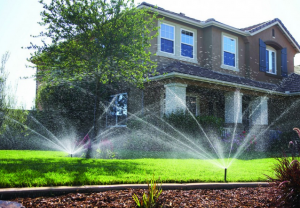 Wow, it has been an unusual Minnesota summer! We had 11 inches of rain in June; only two days of 90 degree weather and plenty of cool cloudy days. Given our unusual summer, I wanted to pass on to you 5 Tips for a healthier August lawn. Enjoy.
Wow, it has been an unusual Minnesota summer! We had 11 inches of rain in June; only two days of 90 degree weather and plenty of cool cloudy days. Given our unusual summer, I wanted to pass on to you 5 Tips for a healthier August lawn. Enjoy.
Summer heat can take a toll on turf. If you mow too low, water too much or too little, or ignore early signs of pests, your grass could quickly become lackluster or even die in small or large patches. Keeps your lawn looking its best with these 5 Tips for a Healthier August Lawn.
5 Tips for a Healthier August Lawn
- Mow at the right height.
In summer, adjust your mower height to leave grass taller. Taller grass shades soil, which reduces water evaporation, leads to deeper roots and prevents weed seeds from germinating. Time your mowing so you’re never removing more than one-third of the leaf surface at a time. - Sharpen your mower blade.
A dull mower blade tears grass, creating ragged, brown edges that provide an opening for disease organisms. Sharpen your mower blade regularly. The rule of thumb is that a sharp blade lasts for 10 hours of mowing. Consider purchasing a second blade so you’ll always have a sharp blade ready to be used. - Let clippings lie.
If you’re mowing grass at the right height, you can let clippings lie on the lawn. This practice is called grasscycling and saves you time, money and fertilizer. - Fertilizing and Weed Killing
Warm-season turf grows strongly during summer and needs nutrients. Check with your local nursery on which fertilizer works best for your soil in August. If you are experiencing occasional weeds around your late summer lawn, bend down and pull them by hand. Pulling up weeds from the root will remove the entire plant as opposed to mowing over them and just clipping off the heads. Your lawn will look much better if you walk through it several times a week and pull stray weeds, instead of solely relying on fertilizer and other chemical-based products. - Water properly.
For the healthiest grass, water your lawn deeply and infrequently. 1 inch of water per week on your lawn, either from rain or your sprinkling system is enough water for the lawn.
